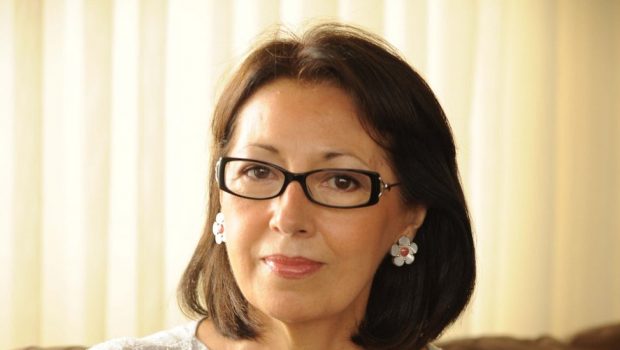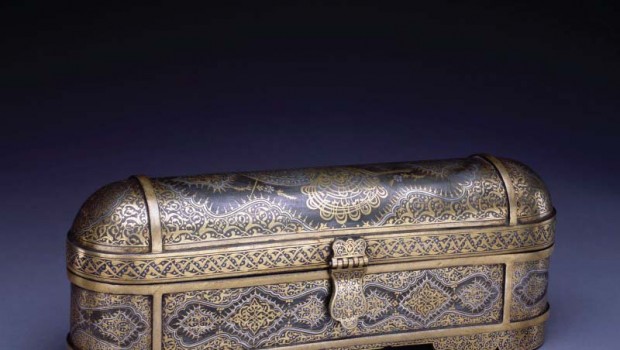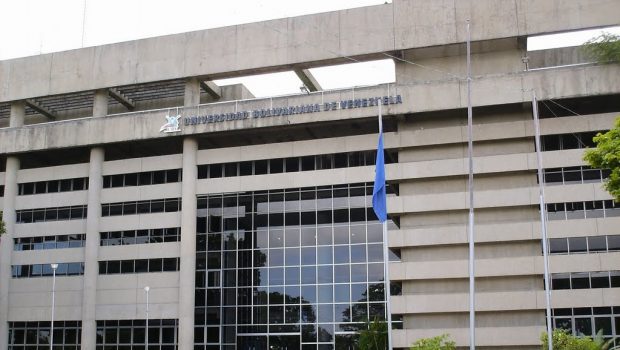Three Crucibles in the Latin American Story. A Conversation with Marie Arana
Rose Mary Salum
Peruvian author, Marie Arana is well-known in book circles for her work as literary advisor to the U.S. Librarian of Congress, director of the National Book Festival, former editor-in-chief of the Washington Post’s Book World,. With her new book, Silver, Sword, and Stone: Three Crucibles in the Latin American Story, Arana weaves a magnificent tapestry of historical research with up-to-the-minute reporting and cultural analysis to give readers an urgent look at Latin America today. She will be at the World Affairs Council, Houston this coming Thursday the 24th of October.
We had the opportunity to talk to her and learn about her most recent book:
Rose Mary Salum.- Would you talk to our readers about the meaning of the title of your book?
Marie Arana.- The Silver, Sword, and Stone of my title represent the factors in the 1000-year history that most define the Latin American experience and have imprinted deeply on the Latin American people. “Silver” stands for the exploitation of the region’s resources—the extractive nature of a region in which gold, then sugar, then fruit, then other precious metals have systematically been taken by foreign forces, transforming it into a virtual colony. “Sword” stands for the extraordinary violence at the very beginning—starting with indigenous cultures, the Spanish Conquest, the wars of independence—that led to the rampant violence that still plagues it today. Lastly, “Stone” represents faith and religion: the way religion was imposed by the indigenous empires on conquered tribes, and then the way the Spanish conquistadors literally took the stone from the native temples to build their churches and cathedrals.
Your book gets at the identity conundrum of Latin America with eloquence and nostalgia. It is both, refreshing and hopeful. Were those your intentions while writing the book?
Absolutely. The Latin American people are extraordinarily resilient. History has not often treated them well, but they resist and persist. Fundamentally, the culture is warm, loving, very focused on family. There has been great art, great music, great literature, and innovation throughout the centuries. The indigenous empires were richly endowed with artists and scientists; their cities were as populated and developed as any in the world in their day. It is a region and a people I love deeply.
Your book combines history, journalism, history and your own voice. That´s a defying way of writing such a book. Many historians might get troubled by those characteristics. And yet, the book flows in a beautiful way. What made you take those decisions?
I wanted to show how history continues to live in the present. How the past rattles through the generations to affect us now. It’s really a fusion of two disciplines: history and journalism. I thought it was really the only way I could make my point. My contemporary subjects—the miner, the warrior, and the priest—are the very images of the ancestors who preceded them 500 years ago.
One of the striking phrases you wrote is that “Latin America still lives with its colonial and post-colonial scars.” How conscious is Latin America, but above all, the United States about it?
I think Latin Americans don’t think about this very often. Although the culture has tended to look back, rather than to the future, it isn’t very analytical about what preceded it. As for the United States, we as a country don’t know much about Latin America at all, even though a quarter of our population—soon to be a third—is Hispanic in origin. I have devoted my entire writing career to try to counter this neglect.
We can´t deny the political troubled Latin America went through, the dictators, the corruption, the exploitation, etc. However, it seems that we´re still not over those problems. The current political state in some countries are really bad. How do you foresee the near future for Latin America?
Latin America needs to break out of its cycle of rebellion and repression. Some countries have made great strides in this: Costa Rica, Uruguay, Chile, Peru. To some extent, Mexico. But corruption, inherited from colonial days and their rank racism, is endemic in the region. When and where this deep cultural flaw is addressed, I believe great progress will be made.
In your own words, why do we need yet another book of Latin America? How do you think this book will enlighten the American Readers?
My great hope is that Americans will read it to better understand the history that has brought—and continues to bring—Hispanics to this country. Few Americans truly understand that Hispanics and the First Peoples of Latin America proliferated from the Rio Grande all the way to Colorado long before the English pilgrims stepped on Plymouth Rock.
 Rose Mary Salum es la fundadora y directora de Literal, Latin American Voices. Es la autora de El agua que mece el silencio (Vaso Roto, 2015) y Delta de las arenas, cuentos árabes, cuentos judíos (Literal Publishing, 2013) y Entre los espacios (Tierra Firme, 2003) entre otros títulos. Su twitter @rosemarysalum
Rose Mary Salum es la fundadora y directora de Literal, Latin American Voices. Es la autora de El agua que mece el silencio (Vaso Roto, 2015) y Delta de las arenas, cuentos árabes, cuentos judíos (Literal Publishing, 2013) y Entre los espacios (Tierra Firme, 2003) entre otros títulos. Su twitter @rosemarysalum
©Literal Publishing. Queda prohibida la reproducción total o parcial de esta publicación. Toda forma de utilización no autorizada será perseguida con lo establecido en la ley federal del derecho de autor.
© Literal Publishing
Posted: October 22, 2019 at 4:59 pm










